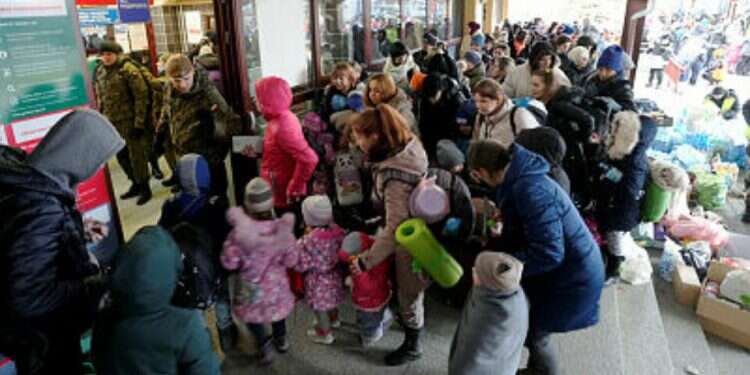A proposal currently being formulated by the ministerial committee for the encouragement of Aliyah to the Negev and the Galilee will allocate 22 million shekels to towns from the periphery that absorb new immigrants. The allocations will be to towns ranked in socio-economic clusters one to four out of 10 (with 10 being the highest ranking). Some 88% of communities in the Negev and Galilee are included in these clusters.
Follow Israel Hayom on Facebook, Twitter, and Instagram
The program to encourage immigration and absorption of Jewish refugees from Ukraine who were forced to leave their homes because of the Russian invasion explains the recent courtship of Ukrainian refugees by mayors in towns in the periphery. As published Wednesday in Real Estate Today, several mayors, including the mayors of Ashkelon, Dimona, Safed, and Nof HaGalil have declared that they would be happy to absorb war refugees in their towns.
Dimona Mayor Benny Biton went a step further and flew out to Lviv in Ukraine to met with Jewish refugees to "persuade" them to come to Dimona. "We cannot remain indifferent," says Biton. "I can see the enormous potential of this high-quality immigration that has been forced to flee their homes and are looking for a new home. Dimona and its neighbors are ready to absorb thousands of new immigrants."
In addition to Dimona, Safed, Nof HaGalil and Ashkelon have already approached the Minister of Housing to receive grants and loans to absorb the wave of immigration.
The proposal notes that the Negev and Galilee suffer from high unemployment and a lower standard of medical treatment compared to the rest of the country, and a low rate of settlement because of accessibility problems -- and that based on this data, the Negev and Galilee regions can be defined as "areas of national preference for the absorption of immigration." Moreover, it noted that less than 20% of. Immigrants arriving in Israel under the Law of Return choose to live in the Negev and Galilee.
Subscribe to Israel Hayom's daily newsletter and never miss our top stories!
According to the plan formulated by the finance ministry, the ministry of absorption, the ministry of housing, and the ministry for development of the Negev and Galilee, immigrants will receive increased assistance, alongside direct grants for immigrants in professions where there is a shortage of manpower, including grants for housing and rent. At the same time, local authorities will receive support to absorb new immigrants. This support will be given via a unique basket of incentives that will include funds for refurbishing and equipping immigrant clubs that serve as an educational and social framework for leisure and cultural activities that integrate the immigrants into Israeli society.
The minister for the development of the Negev and Galilee, Oded Forer, said: "This emergency immigration that we are seeing right now from Ukraine and the region is a one-off opportunity for significant growth in the Negev and Galilee. Aliyah to the communities of the Negev and Galilee will lead to a positive immigration balance and contribute to the economic growth and strengthening of settlement in these areas. It will also help reduce employment gaps and provide solutions in professions where there is currently a shortage."
Forer added: "Directing new immigrants to the Negev and Galilee alongside and increasing the ability of local authorities in these areas to absorb immigration meets the criteria of the national priorities law. There is no doubt that settlement in the Negev and Galilee has great potential for successful absorption of immigrants and their integration into Israeli society, as when immigrants from the diaspora know they will be welcomed in an environment that offers them warm social support and that they will be received by local councils with great experience in absorbing emigration, they are a lot less afraid of immigration to Israel. The State of Israel cannot miss this opportunity to expand settlement in the Negev and Galilee. The entire government is committed to this vision."
This article might include sponsored and commercial content/marketing information. Israel Hayom is not responsible for its nature or its credibility. The publication of such content or information shall not be considered a recommendation and/or an offer by Israel Hayom to purchase and/or use the services or products mentioned in this article.




